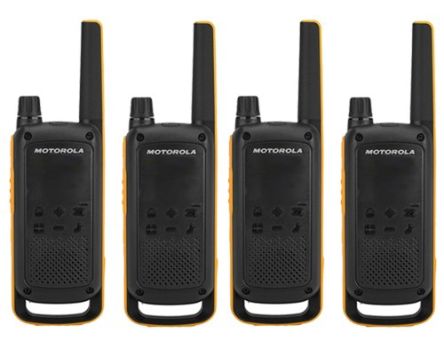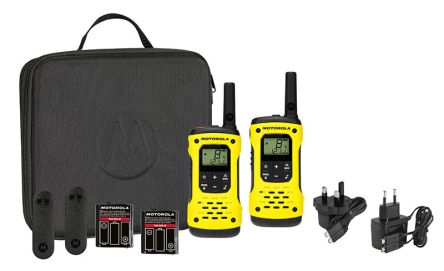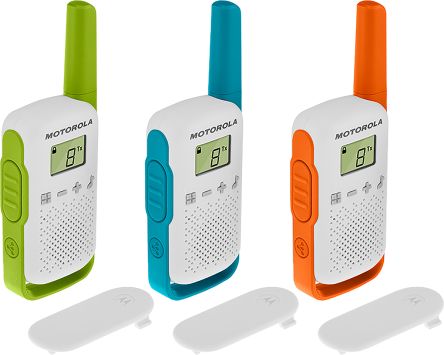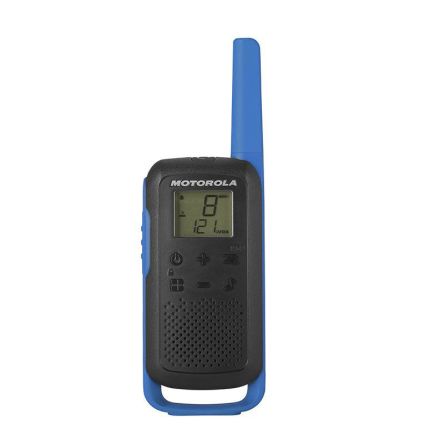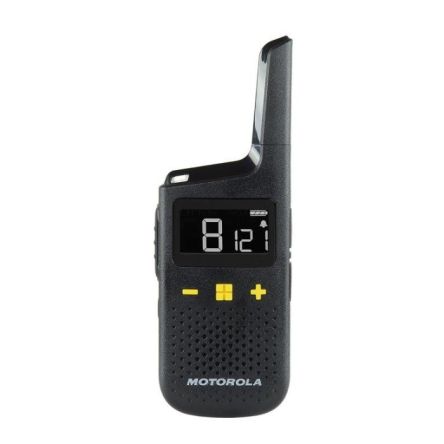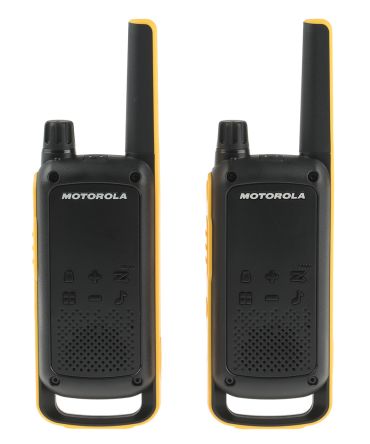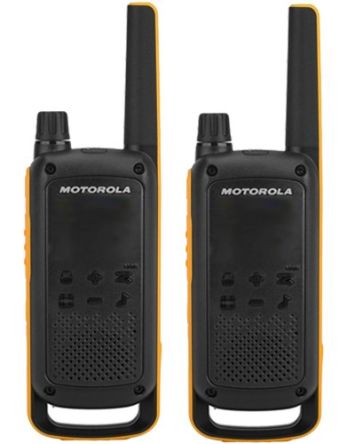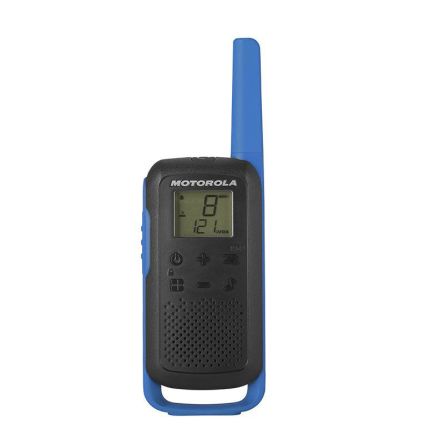- Automation & Control Gear
- Cables & Wires
- Enclosures & Server Racks
- Fuses & Circuit Breakers
- HVAC, Fans & Thermal Management
- Lighting
- Relays & Signal Conditioning
- Switches
- Batteries & Chargers
- Connectors
- Displays & Optoelectronics
- ESD Control, Cleanroom & PCB Prototyping
- Passive Components
- Power Supplies & Transformers
- Raspberry Pi, Arduino, ROCK, STEM Education & Development Tools
- Semiconductors
Motorola Walkie Talkies
A Walkie Talkie, also referred to as a 2 way radio is a handheld device allowing two or more people to communicate while operating on the same radio frequency. Most operate on the licence and subscription free PMR446 (personal mobile radio) frequency working within the UHF 446 MHz range. These two way radios can be operated in any country that has introduced the PMR446 licence free frequency and are compatible with any radios using the PMR446 service. Two way radios are indented for business and personal use.
Types
Two way radios are available as hand held radios, stationary radios that use a docking pod on a desk and mobile radios that are fixed into vehicles. They are usually half-duplex meaning that the operator can either talk or listen. All of these transceivers will have a button known as a PTT (push to talk) When the user pushes the PTT to talk they activate the transmitter, when the button is released the receiver becomes active again. The waterproof radios are available as twin packs or kits supplied with rechargeable batteries, adapters, charger pods and belt clips.
Range
PMR446 2- way radios may suggest long range coverage (2-3 kilometres) this is merely a guide and is subject to terrain and conditions. Clear wide open spaces, in the line of sight with no obstructions (hills, trees buildings, pylons etc.) would allow for wider coverage. The range of 2 way radios used in towns, offices and factories is a little harder to determine. It would depend hugely on the size and shape of the building, what it's made of and the surrounding environment. Users should expect slightly less coverage (a few hundred meters) in most cases. Buildings with several floors or those containing a lot of metal could expect even less coverage.
Applications
Walkie Talkie 2-way radios are extremely useful bits of kit. Providing a convenient way of communicating between two or more people at the touch of a button. The radios are particularly useful where a phone signal may be weak or not present at all. Applications include,
• Outdoor sporting events. Communication is vital between starting and finishing points.
• Concerts and festivals. Security and organisers can ensure everything runs smoothly.
• Emergency services. Respondents must be aware of the situation at all times to be able to react, treat and resolve.
• Military. The army use 2 way radios for communication between air and ground troops. The navy and RNLI use them as a way of communicating when uses out at sea.
